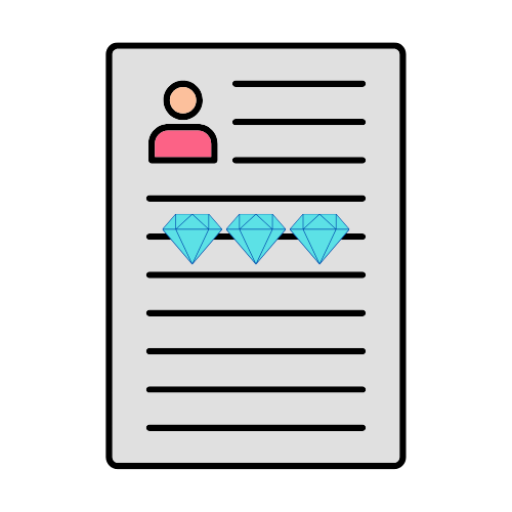Being a teacher equips individuals with a diverse skill set that is highly transferable to various fields, making the exploration of an alternative career for teachers both viable and rewarding. The strong communication, organizational, and problem-solving skills developed in the classroom can open doors to numerous opportunities beyond traditional education roles. Embracing an alternative career for teachers not only fosters personal growth but also allows for the pursuit of new passions and interests. By considering an alternative career for teachers, you can leverage your expertise while expanding your professional horizons.
Below, I’ve listed the top 5 alternative career options for teachers, ranked based on skill transferability and current industry trends, to help you explore exciting new avenues for your career growth.
- Corporate Trainer/Training Specialist
- Instructional Designer
- Educational Consultant
- Education Technology Specialist
- Curriculum Developer
1. Corporate Trainer/Training Specialist
Corporate Trainers design and conduct work-related training programs to improve individual skills and organizational performance. On a day-to-day basis, they develop training materials, deliver engaging sessions, assess employee needs, evaluate program effectiveness, and collaborate with management to align training initiatives with company goals.
Skill Transferability
Teachers possess a wealth of skills that directly translate to corporate training roles. Their expertise in curriculum development, instructional design, and effective communication are highly valuable in creating and delivering impactful training programs. Additionally, classroom management skills, adaptability, and the ability to assess learning outcomes are essential in both educational and corporate training environments. The experience in breaking down complex concepts, facilitating discussions, and addressing diverse learning styles makes teachers well-suited for corporate training positions.
Industry Trends
The corporate training industry is experiencing significant growth due to the increasing emphasis on continuous learning and development in the workplace. There is a rising demand for specialized training in areas such as technology, compliance, and soft skills. The trend towards remote work has also accelerated the adoption of virtual training platforms and learning management systems, creating new opportunities for trainers skilled in digital content creation and online facilitation
2. Instructional Designer
Instructional Designers create engaging learning activities and develop course content to facilitate effective knowledge acquisition. On a day-to-day basis, they collaborate with subject matter experts, design and develop instructional materials, apply learning theories and methods, and utilize multimedia tools to enhance the learning process. They also conduct research, develop assessment instruments, and maintain project documentation for effective course development
Skill Transferability
Teachers possess a wealth of skills that directly translate to instructional design roles. Their expertise in curriculum development, lesson planning, and effective communication are highly valuable in creating impactful learning experiences. Additionally, classroom management skills, adaptability, and the ability to assess learning outcomes are essential in both educational and corporate training environments. The experience in breaking down complex concepts, facilitating discussions, and addressing diverse learning styles makes teachers well-suited for instructional design positions.
Industry Trends
The instructional design industry is experiencing significant growth due to the increasing emphasis on e-learning and digital training solutions in both corporate and educational sectors. There is a rising demand for specialized instructional design in areas such as technology-enhanced learning, microlearning, and adaptive learning systems. The trend towards remote work and online education has also accelerated the adoption of learning management systems and virtual training platforms, creating new opportunities for instructional designers skilled in digital content creation and online course development
3. Educational Consultant
Educational Consultants work with students, parents, and educational institutions to improve learning experiences and outcomes. On a day-to-day basis, they conduct aptitude tests, develop academic plans, advise on educational materials, analyze curricula, and collaborate with educators to enhance teaching methods. They may also assist students with college applications, financial aid processes, and career planning.
Skill Transferability
Teachers possess a wealth of skills that directly translate to educational consulting roles. Their expertise in curriculum development, student assessment, and effective communication are highly valuable in providing guidance and improving educational systems. Additionally, classroom management skills, adaptability, and the ability to work with diverse learners are essential in both teaching and consulting environments. The experience in breaking down complex concepts, facilitating discussions, and addressing individual learning needs makes teachers well-suited for educational consulting positions.
Industry Trends
The educational consulting industry is experiencing growth due to increasing demands for personalized learning experiences and the need for schools to adapt to changing educational landscapes. There is a rising trend in specialized consulting services, such as special education support, college admissions guidance, and curriculum design. The shift towards online and hybrid learning models has also created new opportunities for consultants skilled in educational technology integration and remote learning strategies.
4. Education Technology Specialist
Education Technology Specialists collaborate with educators to integrate technology into classrooms and curricula. On a day-to-day basis, they assess technology needs, provide training on educational tools, develop technology-enhanced lesson plans, and troubleshoot technical issues. They also research and evaluate new educational technologies, create professional development workshops, and work with administrators to implement technology strategies.
Skill Transferability
Teachers possess many skills that directly translate to the role of an Education Technology Specialist. Their expertise in curriculum development, instructional design, and classroom management are valuable for creating effective technology-integrated learning experiences. Additionally, teachers’ ability to communicate complex concepts, adapt to diverse learning styles, and assess student needs are essential in both educational and technology integration environments. The experience in facilitating engaging lessons and understanding pedagogical principles makes teachers well-suited for guiding other educators in adopting new technologies.
Industry Trends
The field of educational technology is experiencing significant growth due to the increasing emphasis on digital literacy and the need for schools to prepare students for a technology-driven world. There is a rising demand for specialists who can implement emerging technologies such as artificial intelligence, virtual and augmented reality, and adaptive learning systems in educational settings. The trend towards remote and hybrid learning models has also accelerated the adoption of learning management systems and online collaboration tools, creating new opportunities for Education Technology Specialists.
5. Curriculum Developer
Curriculum Developers create and manage instructional materials, design lesson plans, and develop learning units to improve student outcomes and support teachers. On a day-to-day basis, they research educational trends, collaborate with subject matter experts, align curricula to educational standards, and create or revise instructional content. They also attend meetings with stakeholders, evaluate existing programs, and provide recommendations for curriculum improvements.
Skill Transferability
Teachers possess many skills that directly translate to curriculum development roles. Their expertise in lesson planning, instructional design, and understanding of educational standards are highly valuable in creating effective learning materials. Additionally, teachers’ ability to adapt content for diverse learners, assess student needs, and communicate complex ideas are essential in both classroom and curriculum development environments. The experience in facilitating engaging lessons and understanding pedagogical principles makes teachers well-suited for designing comprehensive and effective curricula.
Industry Trends
The field of curriculum development is experiencing growth due to the increasing emphasis on personalized learning experiences and the need for schools to adapt to changing educational landscapes. There is a rising demand for curriculum developers who can integrate technology into learning materials, create interdisciplinary units, and design curricula that support diverse learning needs. The trend towards online and blended learning models has also created new opportunities for curriculum developers skilled in creating digital content and leveraging educational technology.

